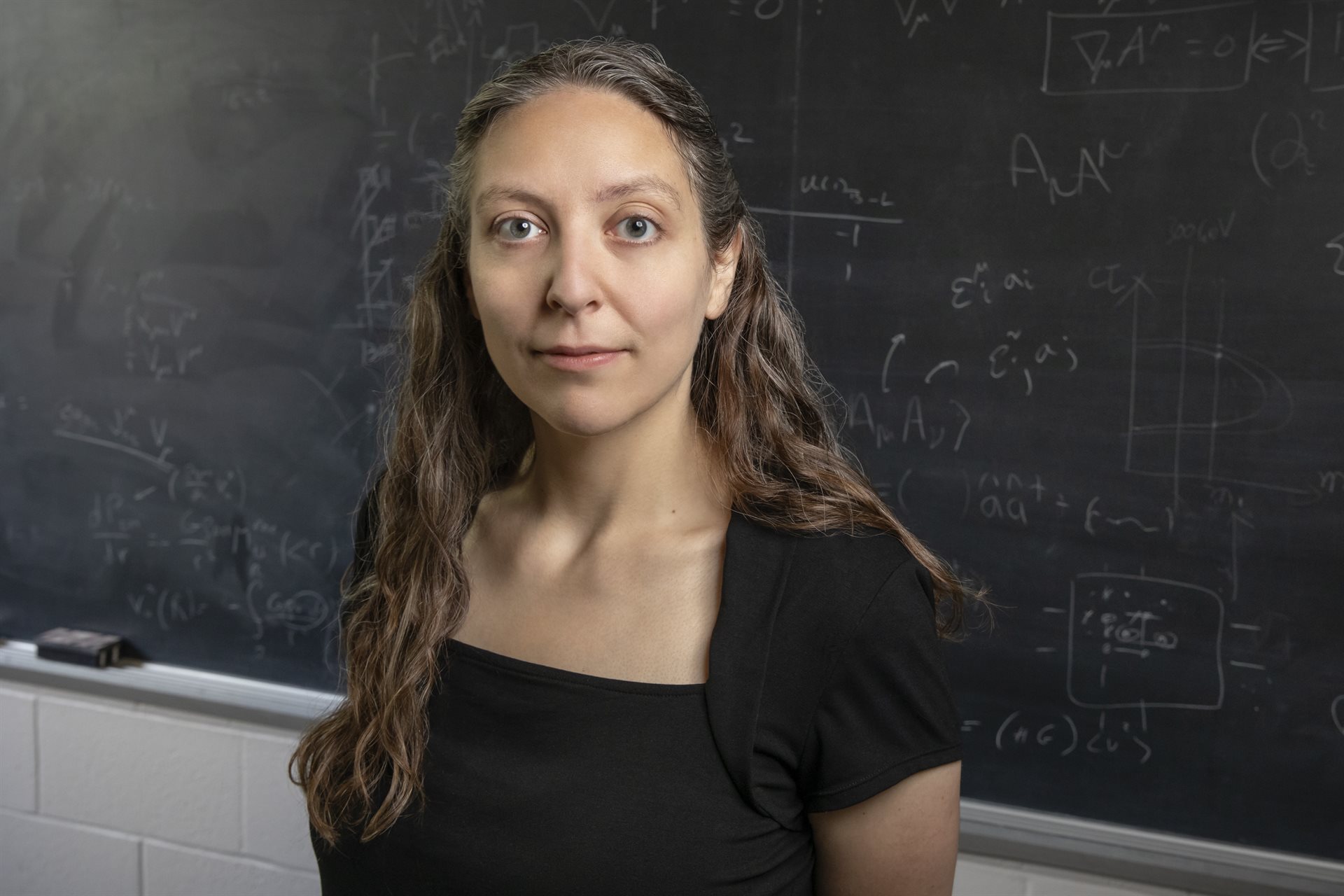 Illinois Physics Professor Julia “Jessie” Shelton has received the 2024 Dean’s Award for Excellence in Research from The Grainger College of Engineering at the University of Illinois Urbana-Champaign. She is recognized for her trailblazing research and leadership in the field of theoretical high-energy physics.
Illinois Physics Professor Julia “Jessie” Shelton has received the 2024 Dean’s Award for Excellence in Research from The Grainger College of Engineering at the University of Illinois Urbana-Champaign. She is recognized for her trailblazing research and leadership in the field of theoretical high-energy physics.
Shelton’s collaborative approach to theoretical particle physics brings in colleagues from adjacent subfields such as nuclear physics, cosmology, and astrophysics, to tackle some of the toughest open questions in physics. She is especially interested in elucidating the nature of dark matter, looking for clues to its origin in systems ranging from terrestrial detectors to neutron stars and black holes. She is particularly focused on “hidden sector” dark matter—dark matter that interacts far more strongly with other dark particles than it does with us.
Shelton is active in the search for unusual footprints of new physics at the Large Hadron Collider (LHC) at CERN in Switzerland, developing strategies to detect particles produced at the LHC that travel macroscopic distances before decaying. In this, she takes a particular interest in challenging “dark showers” signals, as well as exotic decays of the Higgs boson.
One of Shelton’s recent research thrusts has focused on the first-ever nonlinear calculation of the stochastic gravitational wave background produced by the early universe’s transition from a matter-dominated era to the radiation-dominated era, when the universe had cooled down enough to form light elements in the process known as Big Bang nucleosynthesis (BBN). Another related effort, with UIUC collaborators, looked at how measurements of the cosmic expansion rate during BBN as well as during the formation of the cosmic microwave background can be combined to shed new light on the kinds of new particle physics that can exist in the early universe.
Shelton is the recipient of numerous honors. She was selected for a 2019 Presidential Early Career Award for Scientists and Engineers (PECASE), was named a 2019 Center for Advanced Study Fellow as well as a 2019 Compton Faculty Fellow at Illinois, and received a 2017 Early Career Award from the US Department of Energy.
Shelton serves her scientific community through various outreach and service efforts. Among these, two highlights: she co-convened the Astroparticle Physics and Cosmology working group within the Theory Frontier during the Snowmass 2021 community planning exercise, which established community priorities for future US-based particle physics research; and she served as the inaugural theory convener for the Exotic Decays Working Group within the LHC Higgs Cross-Section Working Group.
Shelton received a bachelor’s degree in physics from Princeton in 2000 and a doctoral degree in physics from the Massachusetts Institute of Technology in 2006. She held postdoctoral fellowships at Rutgers University (2006–2009), Yale University (2009–2012), and Harvard University (2012–2013) prior to joining the Illinois Physics faculty in January 2014.
The Dean’s Award for Excellence in Research honors faculty members annually in two faculty-appointment categories: assistant professors are assessed based on one year’s research accomplishments, and associate professors on five years’ research accomplishments. This is Shelton’s second Dean’s Award, this one at the associate professor level.